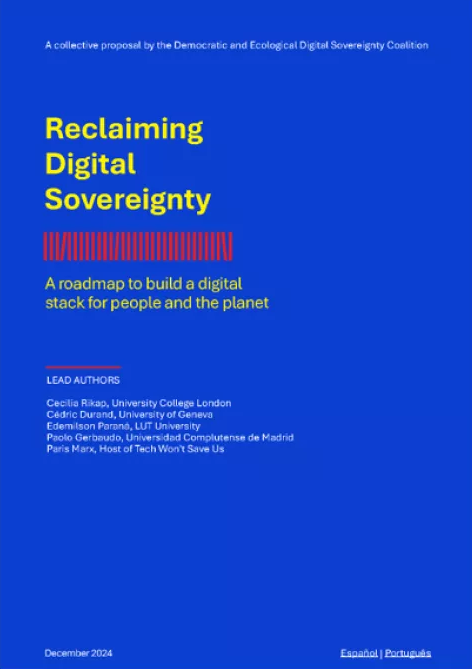The views and opinions expressed in this Blog are those of the authors and do not necessarily reflect the views or positions of any entities they represent.
During its pioneering era in the 1990s, the internet was often presented as an open digital frontier in which different companies and countries could find their own place, and where pluralism, freedom and competition would abound, leading to a future of shared and diffused economic prosperity. The reality of the contemporary internet is a starkly different one: it is an internet dominated by large “hyperscalers” such as Alphabet (Google), Meta (Facebook), Amazon and Apple, and by one country, the US, with other companies and other nations having to content themselves with the crumbs falling from the mouths of these giants. This oligopolistic internet constitutes a major problem from all sorts of viewpoints: for economic activity—given that the dominance of few actors leads to monopolistic tendencies and rent-seeking—and also for democracy—given that the countries that do not exercise any meaningful control over digital technologies find themselves marginalised, disempowered, and under the constant threat of third parties’ economic and geopolitical threats.
Consider the sector of cloud computing, which is now decisive economically due to the fact that many digital services are offered through it. Three US companies—Amazon Web Services (AWS), Microsoft Azure, and Google Cloud, themselves the subsidiaries of some of the largest digital monopolies—control over 2/3 of all the cloud computing market worldwide, reaching over 70% in Europe. European companies are forced to fight among themselves for the leftovers, unable to compete with the hyperscalers, also because of the high degree of fragmentation across national lines. Some people may think that this is just the way a free and open market works, with all of its consequences… Yet, it is evident that it poses serious threats to European companies and democracies. Depending on US-headquartered cloud computing platforms means that European businesses and governments depend on foreign companies for strategic elements of their digital infrastructure. This is usually justified by saying that the US is Europe’s natural ally. But what could happen if the US and the EU had diverging interests on trade or military issues? In fact, this is not anymore a matter of science fiction, especially in the aftermath of Trump’s election and the growing threat of trade war between the US and the European Union. Or what could happen if one of these companies went bankrupt? There are also serious cybersecurity concerns, given the often opaque relationship between US digital companies and its security apparatus, as revealed by whistle-blowers such as Edward Snowden and his revelations in 2013 about the NSA conducting regular trade espionage activities against high-profile European institutions and government officials.
Besides these extreme scenarios—which, however, cannot be considered anymore just as a remote eventuality—one should consider the fact that the undisputed dominance of US corporate giants in this area bars European companies from any serious possibility to compete in a sector subject to “market lock-in”. This state of affairs stifled investment in the digital sector in Europe, representing an obstacle to the emergence of genuine home-grown companies, and thus depriving the European economy of players in the digital industry which over the last two decades has been the main area of economic growth, and the connected job creation. Thus far, Europe has implicitly accepted this condition of subordination in the digital sector. Yet, this situation of dependency and its associated risks have become so apparent that finally, both at national level and at EU level, some initiatives are beginning to unfold. Their main focus is on building “strategic autonomy” in the digital sector, with cloud computing being a particularly important sector of intervention, with various EU Member States currently planning the deployment of national clouds, and ongoing continental efforts like the €3B IPCEI Cloud developing Europe-wide sovereign cloud computing services.
In the policy paper Reclaiming Digital Sovereignty, focused on developing an alternative strategy for a democratic and sovereign digital industry, Cecilia Rikap, Cedric Durand, Paris Marx and myself have collected the proposals of several researches, professionals, and civil society actors in order to chart a different path for the digital economy—a vision that is particularly relevant to policy-making around digital issues in Europe. We call for a democratic and public-led digital stack, with a strong participation of public institutions, as a necessary means to off attempts by Big Tech giants to develop unassailable dominant positions, and allow local digital companies in the private sector to find their footing. We call for a public cloud that would make the expansion of digital sovereignty possible by developing public universal platforms. In turn, this could create a public marketplace for the development of digital services that would run on top of the publicly provided layers of material infrastructure and platforms.
We argue that this would be the recipe for a genuine collaboration between public institutions and private companies, avoiding the extreme concentration of economic and political powers in the hand of few oligarchs as seen in the contemporary US, whilst providing a practical solution to other world regions, such as Europe, in which, without public intervention, private companies would not be able to reach the necessary scale of operation to provide competitive and cost-efficient services. We anticipate that advancing this kind of agenda is not going to be an easy task, not only because of the material challenges it involved (e.g. the need for vast pools of money to invest and the connected organisational and entrepreneurial hurdles) but also because existing dominant actors, in particular US hyperscalers, and their well-funded lobby tentacles, have plenty of resources to persuade EU policy-makers. Yet, for Europe, as for other world regions that have hitherto been forced into a condition of de facto digital colonial servitude, developing autonomous capacities, and in particular sovereign clouds based on open source technologies, has become a decisive step if they are to avoid a future of economic dependency, social decline, and political subordination.

Paolo is a Senior Research Fellow in Social Sciences at the Faculty of Political Sciences and Sociology of the Complutense University in Madrid (Spain). His research project explores the transformation of the state and public services in the digital era from a comparative perspective, with a focus on the consequences for the relationship between citizens and institutions. Previously he was Reader in Digital Politics at King’s College London (2012-2023), where he founded and directed the Centre for Digital Culture. He has a PhD from the Media and Communications department, Goldsmiths College, University of London, with a thesis on the relationship between communication and space in social movements. From 2022 to 2023 he has also been a Marie Skłodowska-Curie Global Fellow at the Faculty of Political and Social Sciences of the Scuola Normale Superiore in Florence with a project on social media and youth cultures in Italy and China.




0 Comments